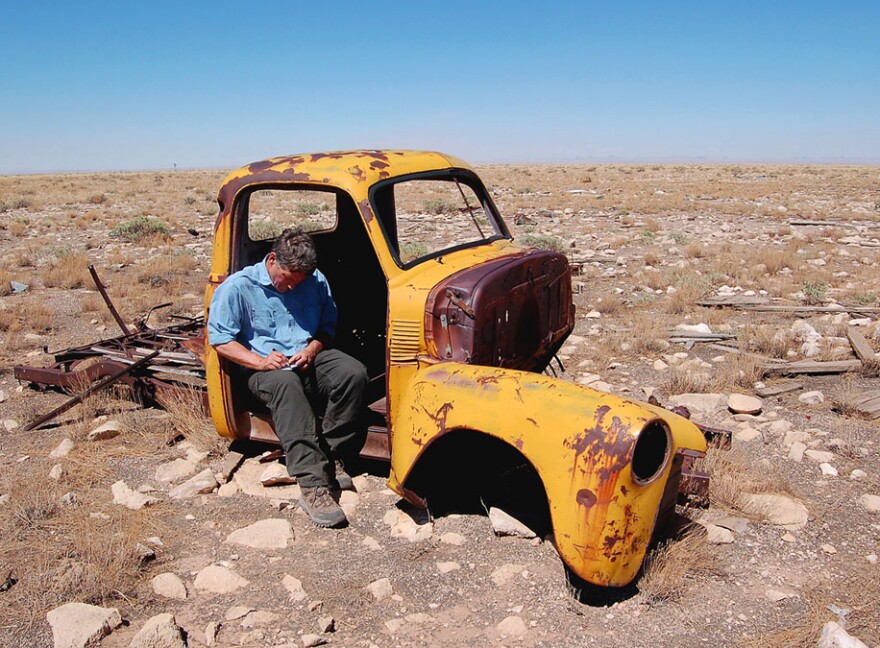Old ghosts returned last night during an unsettled sleep. People I had met on assignments over the years drifted in and out of my thoughts. River guides and ranchers, survivors of dust bowls and death marches, an astrogeologist or two, an Apache woman born in a tipi and a cowboy born in a log cabin.
When I first began to write, I thought interviewing total strangers would be the hardest part of the job. How do you walk up to a mother and ask her to tell you about the death of her child or a Franciscan brother about the moment he began to doubt his faith? To my surprise people had a need to tell their stories. Mainly I listened, and almost always discovered something unexpected. On one interview I even slipped back into the past.
Summer heat had settled in, and the buzzing of cicadas came from a willow thicket on the edge of Fort Laramie National Historic Site. I was trying to find a living history encampment tucked away from modern distractions. A trail cut down the bank, and before taking it I put away my watch.
Woodsmoke drifted through the trees above a party of fur trappers camped on the Laramie River in Wyoming. The pungent smoke mingled with the aroma of cooking meat in an old layering of scents. One mountain man, with a skinning knife sheathed at his back, watched a rack of buffalo ribs sizzling over the coals. Others lounged about repairing gear, while a frontier journalist wearing moccasins and period glasses sat by the fire writing in a notebook. They had chosen every detail of their clothing with remarkable accuracy, and even the mood of the setting felt right.
A park ranger pointed out the chief of interpretation Rex Norman, who had invited me to attend the event. On most days, he wore the gray and green uniform of a ranger, but today had donned his buckskins to re-create a fur trapper encampment from 1830s.
Sunlight glimmered on the river as a trapper stepped into the current. He wore a red shirt and buckskin pants darkened below the knee by the water, the wet fringe hanging heavy. The mountain man drove a long stake into the streambed to set a beaver trap. Suddenly a rider galloped up, shouting a warning. He had seen dust rising in the distance, marking the approach of an unknown horseman. “Okay boys,” said Rex in his role as captain of the outfit, “grab your guns and look friendly.”
An Indian rode into camp dressed in a loincloth and fringed leggings with an eagle feather dangling from his beaver-fur hat. He appeared to be Lakota. A woman wrapped in a blanket followed on horseback. The Lakota made signs indicating a desire to trade, each gesture precise and expressive. A trapper in worn buckskins spread a blanket on the ground, and the Lakota filled a pipe with tobacco. Other mountain men joined them, and they sat cross-legged as the pipe passed around the circle. After completing the ritual smoke, the bartering began, conducted entirely with hand signs.
At the end of the trade I walked over to interview the Indian. He looked puzzled when I introduced myself, refusing to break character. A trapper stepped up offering to help. My question was interpreted in sign language, and the answer came back in signs. The trapper then told me in English what had been said. During this curious interview, I confirmed he was Lakota and learned his name was Kills Night.
Along the Laramie River, I had stepped outside the normal flow of time. To break the spell I put on my watch and climbed up the river bank, leaving behind the year 1835.



